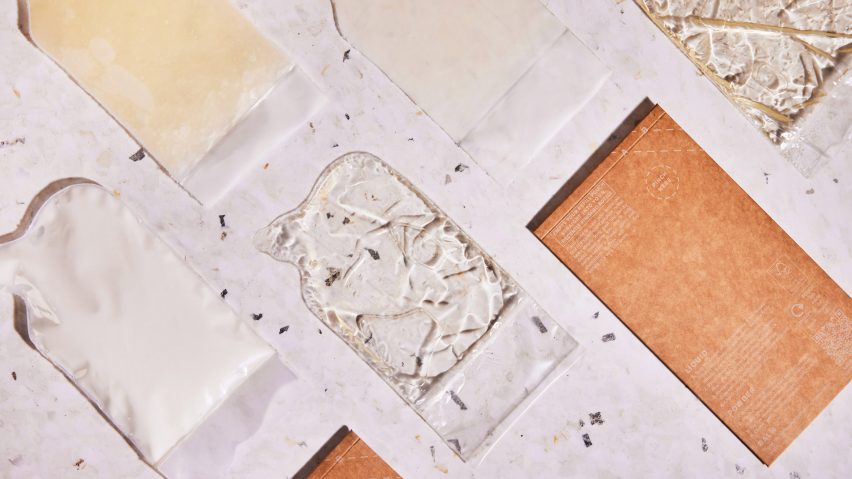A new service offers to help beauty brands reduce plastic waste by distributing their products in dissolvable and compostable refills.
The startup, called On Repeat, has developed "easy and cost-effective" refill packs that can be used for a range of different liquids, powders and balms.
The packs are made using materials that can be easily disposed of at home, including a non-toxic film that dissolves in hot water, a bio-based film that can be put in a compost heap, and FSC-certified cardboard.
As well as producing the packaging, the London-based company offers a complete packing and distribution service.
The UK uses an estimated five million tonnes of plastic every year, nearly half of which is packaging. Yet a recent report from The British Beauty Council revealed that 91 per cent of consumers want their products to have less packaging and 88 per cent want to be able to refill their cosmetics.
For On Repeat founder Micaela Nisbet, this was the impetus to start the business. She hopes to attract many different brands to sign up so that she can have a significant impact on reducing plastic waste.
"It needs to be big in order to effect proper change," she told Dezeen.
"We want to reach the broader market, not just the eco-hippy-mama market," she said. "For us to do that, the service needs to be super easy and cost-effective for both brands and consumers. Because if it isn't, people are not going to come back to it."
Nisbet developed the concept after customers for her own skincare brand, Neighbourhood Botanicals, started asking her if they could order refills.
She couldn't find a solution she felt was genuinely sustainable because while it is easy to source recyclable plastic films, often they are not disposed of as intended.
"It's only rigid plastics like bottles that really get recycled," Nisbet explained. "So when brands sell refills that say they are fully recyclable, it's true in theory but it just doesn't happen in practice."
After testing more than 50 different types of film, Nisbet and her business partners selected two films that they felt could cover all different types of cosmetic products.
For transporting anhydrous serums and oils, they chose a film that dissolves completely in boiling water.
Rather than producing microplastics, it turns into carbon dioxide, water and natural minerals that can be rinsed down the drain.
Water-based products are packaged using a bio-based film made from ingredients that include paper, eucalyptus fibre, cassava and corn starch. It completely decomposes in 32 weeks when placed in a composter.
All products are encased in a cardboard wrapper printed with vegetable inks.
The system is designed to be as simple as possible. Brands send their product in bulk form, then On Repeat takes care of the rest.
On Repeat integrates a brand's e-commerce store into its own distribution software, so it can fulfil orders as they come in. Product is packaged up into the refill packs – along with custom labels including the brand's logo, product information and batch codes – and sent out for delivery within 24 hours.
The refill wallets are small enough to fit through a letterbox so that the customer doesn't have to be home to receive deliveries.
To use the refill, the customer follows instructions on the packaging. They cut the corner off the wallet with a pair of scissors and decant the product into an empty refill bottle, ready for use.
Neighbourhood Botanicals sells its own products in glass and aluminium bottles, to make them better suited for refilling than plastic.
On Repeat is not the first company experimenting with refill options.
Hand wash company Forgo and cleaning products company Spruce are among those that offer products in powder form to reduce the amount of packaging required. Customers then add water themselves.
Brands such as Myro and Fussy have created refillable deodorants, while By Humankind offers a range of refillable products that include mouthwash.
Nisbet hopes to open up the world of refills to an even larger audience. She said that, as the brand expands, she would like to set up her own farm so that she can produce the compostable and dissolvable films herself. She also imagines branching out into other types of home products besides toiletries.
"We just want to make that process as seamless as possible," she said. "We want to make it so everyone can get exactly the products that they want and not have to compromise."

